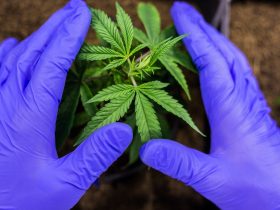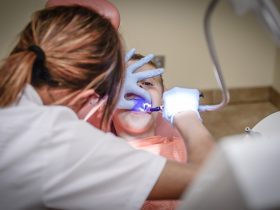Marijuana use and addiction by teens are a growing problem in the Los Angeles area. Parents need to know the facts about marijuana, its dangers, and how to get help for teens. Key Transitions, a teen marijuana addiction rehab centre in Los Angeles, has helped us jot down some relevant information about teen addiction to cannabis.
What You Need to Know About Marijuana
All forms of marijuana-derived from the Cannabis plant were initially cultivated in Tibet before being traded to Europeans after its calming, medicinal properties were discovered. Today’s marijuana is a product of the original cannabis plant, but many genetic modifications have taken place to allow for variations in taste, flavour, and potency.
Marijuana use involves crushing the stems, leaves, seeds, and flowers of the cannabis plant and ingesting them into the body. Methods of use include smoking marijuana cigarettes, called joints. Sometimes the marijuana is rolled into the cigarette with tobacco, but more often, it is pure marijuana.
As the Federal Drug Administration has allowed legalized marijuana, the drug has become more accessible and affordable. This has created an increased cannabis market in the US, particularly among young adults and teenagers. A 2019 study stated that recreational marijuana use was 25% higher in states with legalized marijuana. In states where marijuana is illegal, marijuana use has also increased, particularly among teens aged 12-17.
So, where are these kids getting the pot? Teenagers will get marijuana from friends, adult family members, and by purchasing from drug dealers. A growing concern is the use of synthetic marijuana, created by spraying a combination of chemicals on dried plants. Because this product is unregulated, different chemical combinations are being used by brewers, and the dangers could be worse than natural marijuana.
Some Facts about Teen Marijuana Addiction Every Parent Must Know
Legal marijuana prescriptions among the elderly have increased as doctors find evidence of its effective use in treating glaucoma and Parkinson’s disease. Still, the negative effects of marijuana on the developing brains of teenagers prove it is not worth the risk of use.
The chemical THC in the drug that creates the high effect binds with neurotransmitters in the brain. Developmental issues and lower IQ are proven effects of adolescents who smoke cannabis. Other proven effects of teenage marijuana use include depression, anxiety, schizophrenia, and the likelihood for mental health issues like personality disorders and suicidal tendencies.
Pot harms growing brain cells in teenagers but smoking marijuana is often just the first step to dangerous drug addiction.
Teens And Marijuana Addiction is Common
Adolescent cannabis use is often the first step in a substance abuse addiction. Teens mistakenly believe that recreational marijuana use is harmless. The legalization of recreational marijuana use in some states by the Federal Drug Administration creates the false notion in teens that marijuana is no more harmful than tobacco.
These mistaken assumptions, combined with the relative ease of getting the drug, make pot the first drug of choice for most teenagers. What might start as an experiment in drug use can quickly escalate into a situation that requires inpatient or outpatient treatment.
What Are the Symptoms of Marijuana Addiction in teens?
As a parent, you worry your child might become involved in harmful behaviours. Most kids will not come right out and tell you they have been smoking pot, so you need to know what to look for:
Physical Symptoms
Physical changes occur during puberty as the body grows and the child matures, but some physical changes are not normal and may warrant investigation.
- Change in weight
- Nausea or vomiting
- Breathing problems or illnesses
- Acne or rash around the mouth
- Burns or staining on fingers and lips
- Glassy eyes
- Inability to focus eyes
- Looks tired all the time
- Restless or interrupted sleep patterns
- Change in appetite
- Laughing all the time
- Crying all the time
Cognitive Symptoms
By the time they are teenagers, children have mastered common tasks and developed an idea of things they enjoy doing and do not enjoy doing. While they may create new ways of doing things, a sudden lack of interest or inability to complete a common task is often a sign of drug use.
- Stumbling or tripping
- Forgetting to do important things
- Inability to solve simple problems (i.e. tying a shoelace)
- Inability to complete routine tasks (i.e. setting the table, brushing teeth)
- Forgetting the names of well-known acquaintances
- Losing interest in hobbies or sports they loved
- Having angry outbursts over trivial things
- Having violent, physical reactions
Behavioural Symptoms
Teen behaviour is often irrational, illogical, and confusing, but extreme behaviour changes might signal a drug problem.
- Becoming secretive
- Wanting to be alone
- Lying
- Stealing
- Hanging out with a new group of friends
- Ignoring old friends
- Talking to people who aren’t there
- Seeing objects that aren’t there
- Having problems in school
Psychological Symptoms
Over time, marijuana use can create long-term psychological issues that may require treatment and counselling. These mental disorders can hurt relationships and destroy a family.
- Anxiety
- Depression
- Paranoia
- Hallucinations
- Schizophrenia
- Multiple Personalities
- Abusive to self or others
- Suicidal
- Partial memory loss
Alarming Signs That Your Teen Needs Marijuana Drug Addiction Treatment
Teens going through marijuana addiction need help. Without a proper treatment and withdrawal plan, their drug use could progress into stronger, more harmful substances like heroin or cocaine.
If your teen displays any of the behaviors listed here, get immediate professional help from a qualified teen marijuana addiction specialist.
- Self-harming behavior (i.e. Cutting or scratching)
- Death talk (i.e. you’d like it better if I wasn’t alive)
- Suicidal talk
- Suicidal behavior
- Abuse to others (i.e. verbal or physical)
- Hallucinating
- Avoidant behavior and depression
Teen Marijuana Addiction Treatment in Los Angeles
When dealing with teen substance abuse disorders, it is important to realize that no singular treatment option is effective in every case. By working with the staff at Key Transitions, treatment effectiveness is practically guaranteed, as they will take the time to really learn about your child and develop an individualized treatment plan.
Early Intervention Services
The most effective drug abuse treatment programs begin with early intervention. Addressing substance abuse and dealing with the problem quickly can prevent the likelihood of future drug use.
Outpatient Treatment Programs
For teens in the early stages of drug abuse, a weekly outpatient treatment program is the most common option. This allows the adolescent to continue living at home and going to school while undergoing a withdrawal and treatment plan. The benefits of this type of plan include being around loved ones and maintaining a long-established routine. Disadvantages of this plan include the child being able to get marijuana from drug-abusing friends or dealing with peer pressure to use drugs.
(Teen IOP) Teen Intensive Outpatient Program
The Teen IOP program from Key Transitions gives more support than a once-a-week meeting. Teens enrolled in the IOP program continue to live at home but have more frequent interactions with mentors, counsellors, and clinicians. Through this program, the treatment plan involves the whole family. Positive family routines and goals are developed. Trust-building exercises are included, as well as family counselling and education sessions. Teen IOP patients will also develop plans for improving academic success and rebuilding struggling relationships with former friends and teammates.
Multiple therapeutic models
A teen addiction withdrawal program will use a combination of therapeutic methods. Your clinician may choose to employ any of the following therapy models.
Family-based therapy
Family-based therapy will be used in combination with patient/counselor therapy sessions. This is a time for airing all the dirty laundry, as the saying goes. In this controlled setting, you and your teen will have a chance to discuss what is right and wrong about your relationship openly. You will also work together to set SMART goals that will lead to your child’s success in overcoming the addiction.
Individual and group therapy.
- Cognitive-behavioural therapy (CBT) is based on the idea that problems are blamed on faulty thinking and unhelpful behaviour patterns. In this therapy model, people learn to cope with their problems rather than using drugs to deal with things. Individuals undergoing cognitive-behavioural therapy learn to understand their own behaviour and motivations and how to change their thinking and develop the confidence to use problem-solving skills to cope with things.
- Brief intervention/motivational interviewing (BI/MI) involves working with a non-judgmental outsider, a mentor assigned by the treatment facility, who works closely with the patient to develop a trusting and positive relationship. Together they set goals and make a plan to work toward those goals. Throughout the journey, the mentor offers positive reinforcement and encouragement.
- The contingency management reinforcement approach focuses on improving the whole person, not just overcoming the addiction. The method involves replacing the reward produced by the drug (the high) with tangible rewards or vouchers for prizes.
- Twelve-step programs The most popular program is the 12 step program. It has been used by Alcoholics Anonymous and other programs successfully for decades. It involves admitting you have a problem, asking a higher power for strength and help, apologizing to others, and working to overcome your problem.
- Therapeutic community (TC) The therapeutic community is the group of individuals going through the plan together. They work together to uplift members and help them stay on track. As individuals progress through the steps, they are assigned higher responsibilities in the community. Many eventually become community leaders by the time they complete the program.
- Pharmacotherapy combines medications to curb cravings and lessen withdrawal symptoms with a contingency management plan. The detox treatment for marijuana addiction has many symptoms, including:
- Shaking
- Anger
- Insomnia
- Nausea
- Vomiting
- Headaches
- Sweating
- Dehydration
- Craving for the drug
- Electroconvulsive therapy (ECT) In cases of extreme mental disorders caused by drug use and withdrawal, the patient may undergo ECT. While under anesthesia, a medically induced seizure triggers synapses to fire in the brain and can change mood-altering behaviors like schizophrenia, anxiety, depression, and manic episodes.
Advantage of teen Marijuana Addiction Treatment Program at Key Transitions
Adolescents suffering from substance abuse disorders often do not realize why they became addicted to the drug. Without education about how the brain develops and how the THC in marijuana affects the brain, the teen will continue to think pot is harmless. Specially trained experts at Key Transitions will work with your child and educate them through all steps of the treatment process.
- Learning about the disease of addiction and the dynamics of recovery
How addiction occurs
How the drug affects the brain
Individual reasons for becoming addicted
Steps to recovery
- Implementing healthy new practices into your daily routines
Meditation
Yoga
Worship (if desired)
Self love and confidence building
- Family Therapy and Rebuilding healthy family relationships
Healing broken relationships
Open communication
Respect
Activities the family can do together
- Resuming academic responsibilities and activities
Working with school counsellors to get back on track
Rebuilding physical fitness
Working with a team
Goal setting and planning
- Developing community with local students and utilizing a sober support network
Joining a group of sober students
Offering mentoring for these individuals
Participating in group communication sessions
Some parenting Tips for Dealing With a Marijuana Addicted Adolescent
Talking With Your Teen About Substance Abuse
Be proactive rather than reactive when dealing with a teen who may be using marijuana. Don’t get angry or become condescending. The child deserves respect and empathy. Ask him who has been dealing to him, or how he is getting the pot. He may not answer, and if not, that is fine. Educate him about how dependence begins and the physical and psychological problems that occur. Openly discuss the differences between legal usage among medical patients and recreational drug use.
Teen Substance Abuse Treatment Programs
When you are ready to get help for your teen, contact a teen addiction treatment center. Be prepared to discuss the treatment options and decide what is best for your child based on his level of dependency. Realize that there will be multiple withdrawal symptoms as the dope leaves his system, and honestly assess whether you can deal with that at home or if you need inpatient treatment to take place. Involve your teen in the decision if they can make rational decisions.
What is the Cost of Marijuana Addiction Treatment
- Outpatient treatment programs can cost anywhere between $5000-$20,000+/month depending on the severity of the addiction and the specific treatment prescribed. Outpatient programs are typically cheaper because it’s not a full-time residency program. Both programs often include a period of detox followed by a treatment plan that includes therapy, counseling or mentoring, medical care, and appropriate housing. This teen marijuana treatment may take from 30-90 days, and costs will vary.
Does Insurance Cover Marijuana Addiction Treatment?
Most major PPO health insurance providers cover drug dependency and addiction issues. Depending on the treatment plan, your insurance may cover up to 80% of the costs minus your deductibles and co-pay. Contact your insurance company or refer to the policy handbook for details.
Conclusion
Teen marijuana addiction is a growing problem in Los Angeles and many other areas. Not only can marijuana addiction cause damaging physical effects, but it can lead to coexisting disorders such as anxiety, depression, and suicidal tendencies. Prolonged teenage marijuana use can lead to a decrease in IQ and logical reasoning skills.
There is help for teen marijuana addiction. With proper treatment, like that offered by Key Transitions, your teen will not only learn to overcome their drug addiction but will also learn skills to overcome peer pressure situations and other temptations. With guided parental support and support from their therapeutic community will help them continue to live a drug-free life.







